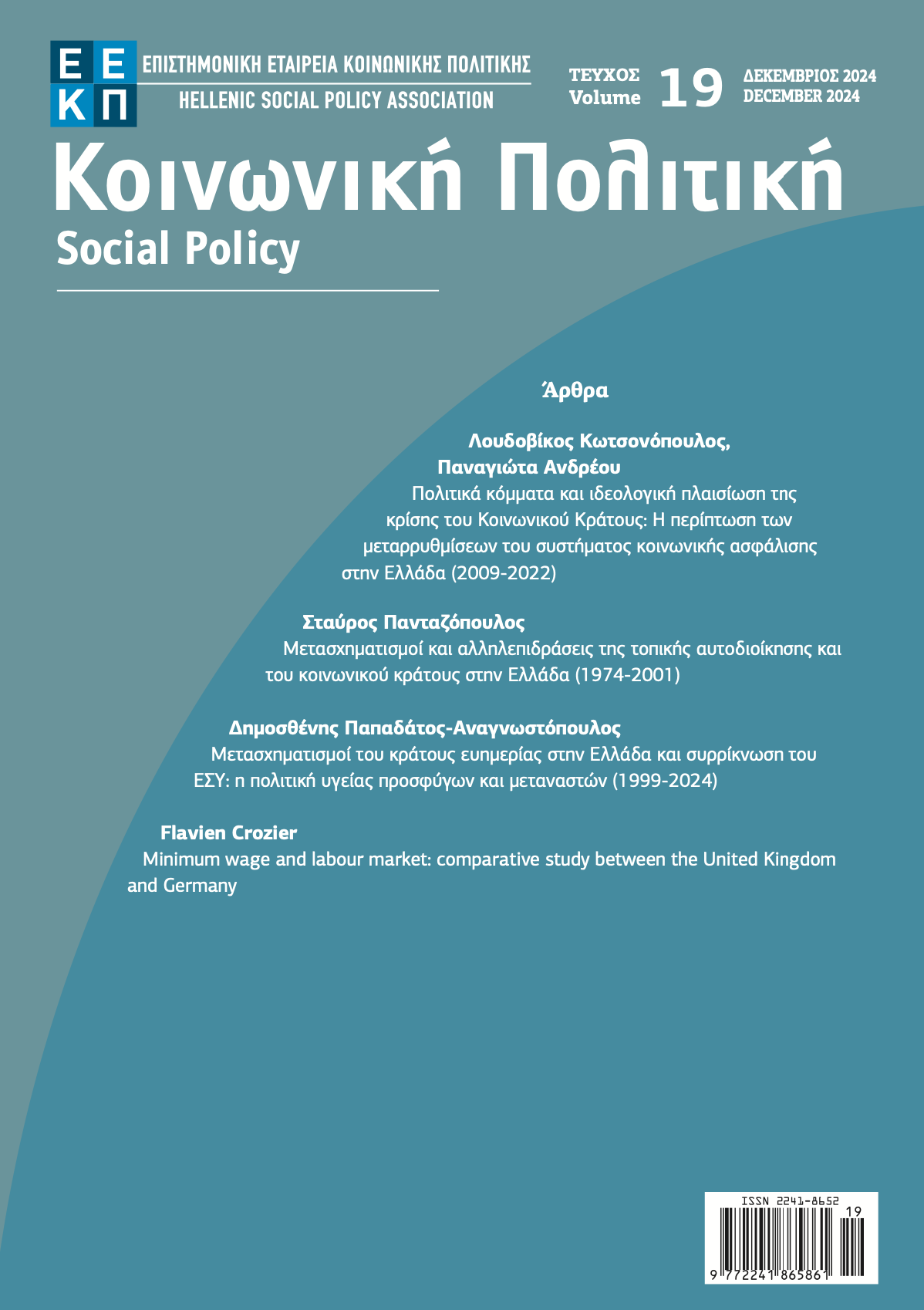Minimum wage and labour market: comparative study between the UK and Germany

Abstract
This essay explores the economic, political, and social implications of minimum wage policies in Germany and the United Kingdom, focusing on the impact on the labour market. Tracing the historical evolution and key developments in 2015, the study analyses short-term effects and challenges in assessing the policy's true impact. The findings suggest positive outcomes in increasing incomes for low-wage workers with minimal disruptions to employment. However, concerns persist about potential drawbacks, such as wage disparity and challenges to collective bargaining, emphasising the need for a comprehensive approach. Despite achieving some objectives, the reforms often fall short of expectations, with limited success in improving living standards.
Article Details
- How to Cite
-
Crozier, F. (2025). Minimum wage and labour market: comparative study between the UK and Germany. Social Policy, 19, 81–98. https://doi.org/10.12681/sp.37379
- Issue
- Vol. 19 (2024)
- Section
- Articles

This work is licensed under a Creative Commons Attribution 4.0 International License.
Authors who publish with this journal agree to the following terms:
Authors retain copyright and grant the journal right of first publication with the work simultaneously licensed under a Creative Commons Attribution Non-Commercial License that allows others to share the work with an acknowledgement of the work's authorship and initial publication in this journal.
Authors are able to enter into separate, additional contractual arrangements for the non-exclusive distribution of the journal's published version of the work (e.g. post it to an institutional repository or publish it in a book), with an acknowledgement of its initial publication in this journal.
Authors are permitted and encouraged to post their work online (preferably in institutional repositories or on their website) prior to and during the submission process, as it can lead to productive exchanges, as well as earlier and greater citation of published work.


